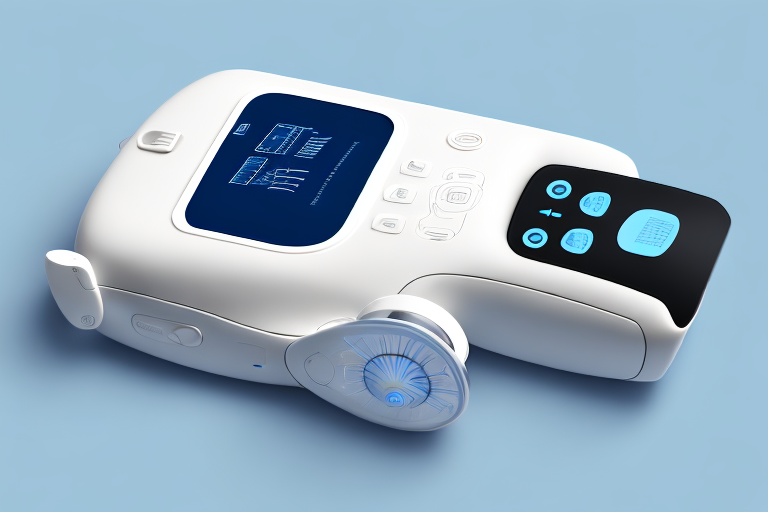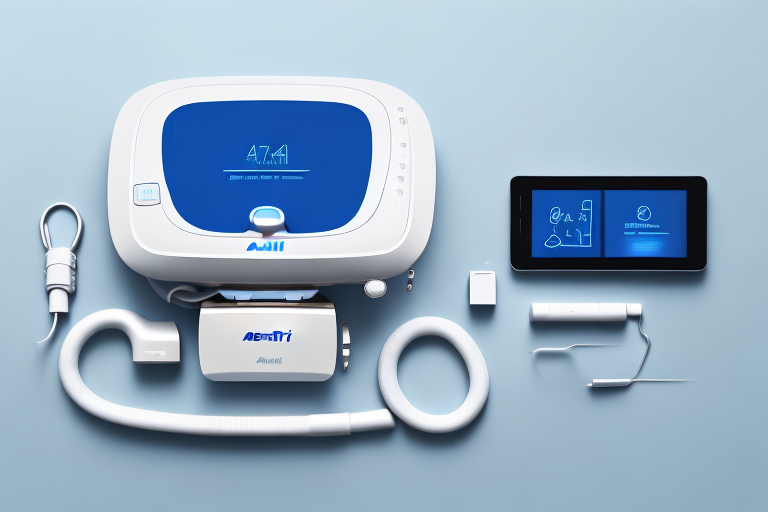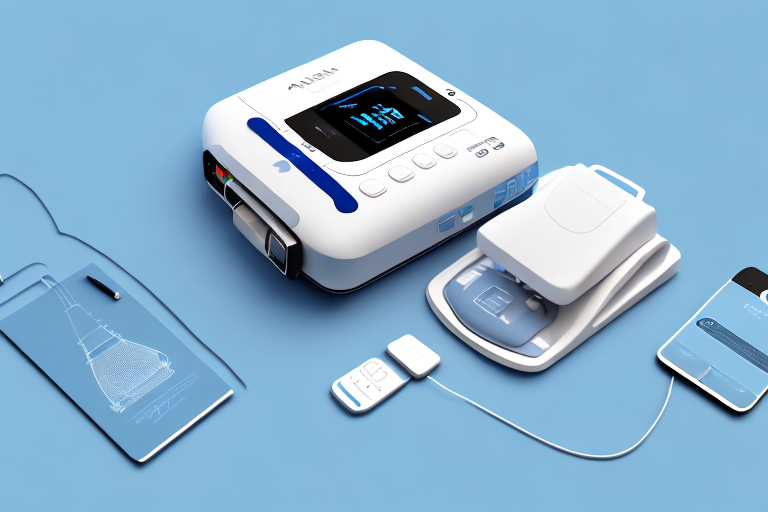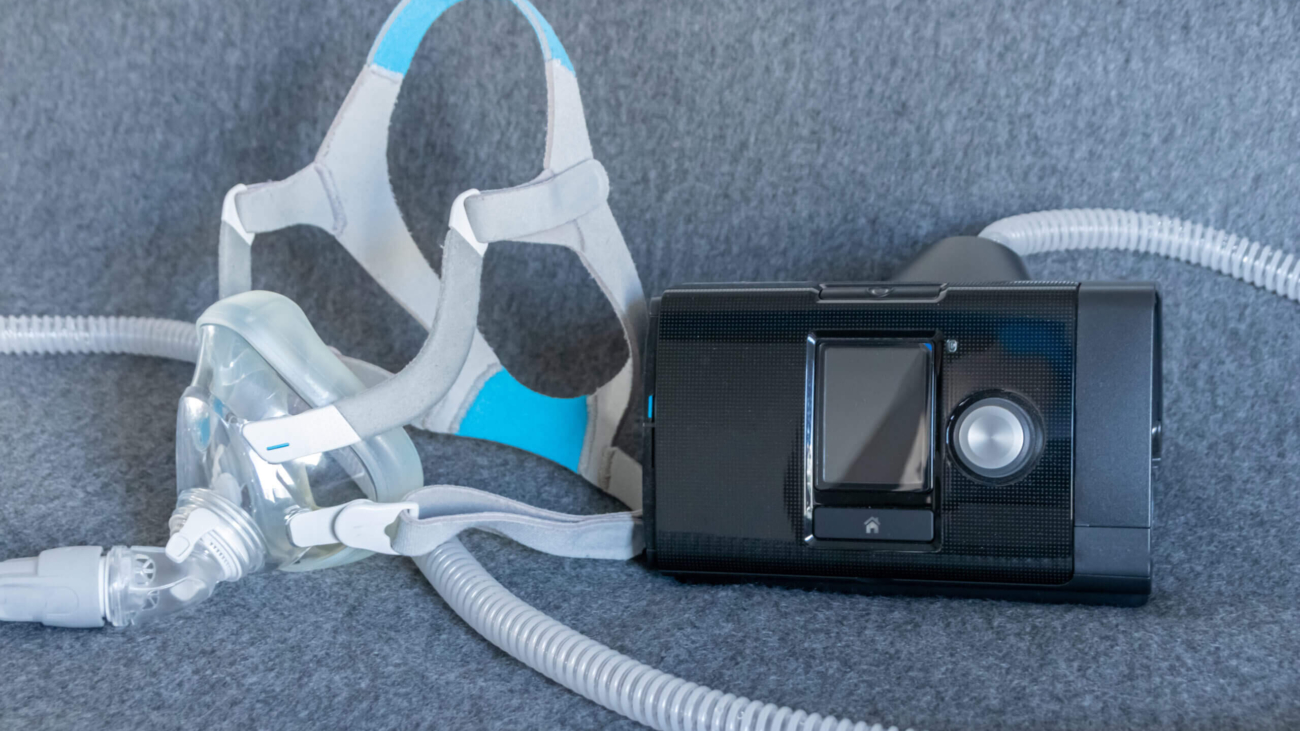Sleep apnea is a serious sleep disorder that affects millions of people worldwide. One of the most effective treatments for sleep apnea is the use of Continuous Positive Airway Pressure (CPAP) machines. These devices provide a constant flow of air pressure to keep the airways open during sleep, allowing uninterrupted breathing and a restful night’s sleep.
What is a CPAP Machine?
A CPAP machine is a medical device that delivers pressurized air through a mask worn over the nose or mouth. Patients buy cpap machines for continuous flow of air that creates a positive pressure in the airways, preventing them from collapsing and ensuring a steady supply of oxygen during sleep.
CPAP therapy is commonly prescribed for individuals with obstructive sleep apnea, a condition where the airway becomes partially or completely blocked during sleep, leading to pauses in breathing and disrupted sleep patterns. By using a CPAP machine, patients can experience improved sleep quality, reduced daytime fatigue, and lower risks of associated health problems such as heart disease and stroke.
The Basic Components of a CPAP Machine
A CPAP machine consists of several key components. The main unit houses a motor that generates the necessary air pressure. This is connected to a tubing system that directs the air to the mask. The mask, which can be full-face, nasal, or nasal pillows, is worn by the patient and provides a seal to deliver the pressurized air effectively.

In addition to these components, modern CPAP machines often come equipped with advanced features such as humidifiers to prevent dryness in the airways, ramp settings that gradually increase pressure to help users fall asleep more comfortably, and data tracking capabilities that allow healthcare providers to monitor treatment effectiveness over time.
Different Types of CPAP Machines
There are several variations of CPAP machines available to cater to different needs. Standard CPAP machines provide a fixed pressure throughout the night, while Auto CPAP machines adjust the pressure automatically based on the individual’s breathing patterns. BiPAP machines offer two levels of pressure, one for inhalation and another for exhalation, which can be beneficial for people who have difficulty exhaling against a higher pressure.
For individuals who travel frequently or prefer more compact options, there are also travel-sized CPAP machines that are lightweight and portable without compromising on performance. These machines are designed to be easily packed and transported, allowing users to maintain their CPAP therapy routine even when away from home.
The Science Behind CPAP Machines
CPAP machines work by creating a constant flow of pressurized air, effectively splinting the airways open. This counteracts the narrowing or collapse of the airways that occurs during sleep apnea episodes. The continuous positive pressure maintains the integrity of the air passages, allowing air to freely flow into the lungs and preventing interruptions in breathing.
Understanding the mechanics behind CPAP machines can shed light on how they help individuals with sleep apnea breathe more easily during sleep. By delivering a steady stream of pressurized air, these devices act as a pneumatic splint for the upper airway, preventing it from collapsing and maintaining a clear passage for air to flow unobstructed into the lungs.
How CPAP Machines Generate Air Pressure
A CPAP machine uses a quiet motor to draw in ambient air and pressurize it to the desired level. The pressurized air is then delivered through the tubing system to the mask. This constant flow of air creates a positive pressure that keeps the airways open and prevents obstructions.
The process of pressurizing the air involves intricate mechanisms within the CPAP machine that regulate the airflow and pressure levels with precision. This ensures that the user receives the optimal amount of pressure required to keep their airways open throughout the night, promoting uninterrupted breathing and restful sleep.
The Role of Humidification in CPAP Machines
The pressurized air delivered by CPAP machines can cause dryness and discomfort in the nasal passages and throat. To address this, many CPAP machines are equipped with a built-in humidifier. The humidification system adds moisture to the air before it reaches the mask, alleviating dryness and enhancing comfort during sleep.
Humidification plays a crucial role in enhancing the overall comfort and compliance of CPAP therapy. By moistening the airway passages, the humidifier not only reduces dryness but also helps prevent issues such as nasal congestion and irritation. This additional feature in CPAP machines ensures that users can experience a more comfortable and effective treatment for their sleep apnea, promoting better adherence to therapy over time.

The Importance of CPAP Machines in Treating Sleep Apnea
Sleep apnea is characterized by repeated interruptions in breathing during sleep. These interruptions can lead to a range of health issues, including daytime fatigue, increased risk of cardiovascular disease, and impaired cognitive function. CPAP machines play a crucial role in treating sleep apnea and mitigating its associated risks.
The Connection Between Sleep Apnea and Breathing Interruptions
Sleep apnea is caused by a partial or complete obstruction of the airways during sleep. This obstruction prevents adequate airflow, resulting in pauses in breathing that can last for seconds or even minutes. CPAP machines provide a constant flow of pressurized air, effectively splinting the airways open and preventing breathing interruptions.
How CPAP Machines Improve Sleep Quality
By ensuring a continuous supply of pressurized air, CPAP machines help to improve sleep quality for individuals with sleep apnea. With the airways kept open, breathing becomes regular and uninterrupted, allowing for a more restful sleep. This leads to increased energy levels and improved daytime function.
Moreover, CPAP machines not only aid in preventing breathing interruptions but also help in reducing the loud snoring often associated with sleep apnea. The continuous positive airway pressure generated by the machine prevents the soft tissues in the throat from collapsing and vibrating, which is a common cause of snoring. This not only benefits the individual using the CPAP machine but also their sleep partner, creating a more peaceful sleeping environment for both.
The Technology Behind CPAP Machines
CPAP machines operate by drawing in room air, filtering it, and pressurizing it to the prescribed level before delivering it through a hose and mask to the user. The pressure settings can be adjusted based on the individual’s specific needs, ensuring optimal treatment efficacy. Modern CPAP machines often come equipped with features such as heated humidifiers to prevent dryness in the airways and ramp settings that gradually increase pressure to help users fall asleep more comfortably.
The Health Benefits of Using a CPAP Machine
Using a CPAP machine regularly can have a positive impact on overall health and well-being. The benefits extend beyond improving sleep quality and addressing sleep apnea symptoms.
Furthermore, the use of CPAP machines can have a significant impact on various aspects of health, including heart health and daytime alertness.
Impact of CPAP Machines on Heart Health
Sleep apnea is known to increase the risk of cardiovascular problems, including hypertension, heart disease, and stroke. By effectively treating sleep apnea, CPAP machines can help reduce these risks. The continuous positive pressure provided by CPAP machines keeps blood oxygen levels stable, alleviates strain on the heart, and improves overall cardiovascular health.
In addition to reducing the risk of cardiovascular issues, CPAP therapy can also help in regulating blood pressure levels. Consistent use of CPAP machines has been shown to lower both systolic and diastolic blood pressure, contributing to better heart health and overall well-being.
CPAP Machines and Enhanced Daytime Alertness
Sleep apnea can greatly affect daytime alertness and cognitive function. The constant interruptions in breathing prevent restorative sleep, leading to excessive daytime sleepiness and difficulty concentrating. CPAP machines address this by ensuring uninterrupted breathing during sleep, resulting in enhanced daytime alertness, improved concentration, and better overall cognitive function.
Moreover, the improved quality of sleep achieved through CPAP therapy can also have positive effects on mood and emotional well-being. Better sleep can lead to reduced irritability, enhanced emotional stability, and an overall improved quality of life.

Overcoming Challenges with CPAP Machines
Adapting to the use of a CPAP machine can sometimes pose challenges for individuals. However, there are strategies and solutions available to address common concerns and improve comfort and compliance with treatment.
Addressing Common Concerns About CPAP Machines
Some individuals may experience initial discomfort or difficulty adjusting to wearing a CPAP mask. However, with the help of healthcare professionals and proper mask selection, these challenges can be overcome. Regular communication with healthcare providers can provide crucial support and guidance in finding the right solutions to address any concerns.
Tips for Adjusting to a CPAP Machine
Adjusting to using a CPAP machine may take time, but there are several strategies that can facilitate the process. Gradually increasing the duration of CPAP machine usage, practicing relaxation techniques before sleep, and using comfort-enhancing accessories can all contribute to a smoother adjustment period. It is also important to maintain a consistent sleep schedule and create a relaxing sleep environment to promote restful sleep.
One effective strategy for adjusting to a CPAP machine is to gradually increase the duration of usage. Starting with shorter periods of time, such as 15-30 minutes, and gradually increasing the duration each night can help the body and mind acclimate to the machine. This gradual approach allows individuals to become more comfortable with the sensation of wearing the mask and the flow of pressurized air.
In addition to gradually increasing usage, practicing relaxation techniques before sleep can also aid in the adjustment process. Engaging in activities such as deep breathing exercises, meditation, or gentle stretching can help calm the mind and body, making it easier to fall asleep with the CPAP machine. Creating a bedtime routine that incorporates these relaxation techniques can signal to the body that it’s time to wind down and prepare for sleep.
Furthermore, using comfort-enhancing accessories can greatly improve the overall experience of using a CPAP machine. For example, there are mask liners available that can help reduce skin irritation and improve the fit of the mask. Additionally, using a humidifier with the CPAP machine can add moisture to the air, preventing dryness and discomfort in the nasal passages and throat.
Lastly, maintaining a consistent sleep schedule and creating a relaxing sleep environment can contribute to a smoother adjustment period. Going to bed and waking up at the same time every day helps regulate the body’s internal clock, promoting better sleep quality. Creating a sleep environment that is cool, dark, and quiet can also enhance the overall sleep experience.
In conclusion, CPAP machines are essential devices for the effective management of sleep apnea. By providing a constant flow of pressurized air, CPAP machines keep the airways open and ensure uninterrupted breathing during sleep. These machines not only improve sleep quality but also have long-term health benefits, including enhanced cardiovascular health and daytime alertness. While there may be initial challenges in adapting to CPAP machines, the support of healthcare professionals and the implementation of strategies can make the transition easier. Understanding CPAP machines and their role in treating sleep apnea is crucial for those seeking effective treatment and improved quality of life.
More to read: The Ultimate Guide to Choosing the Right CPAP Machine for Better Sleep

